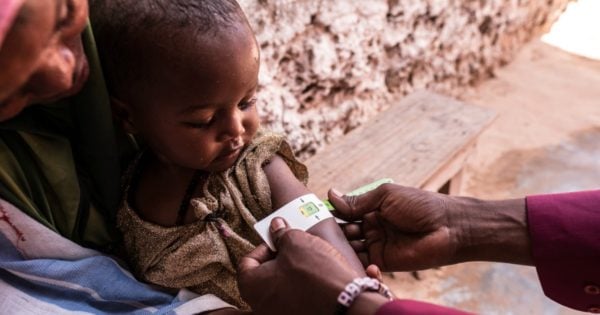It’s a humanitarian crisis on a scale of World War II – yet most Australians have no clue about it, and those that do know don’t seem to care.
A recent poll shows two-thirds of Australians have no idea 23 million people are starving poor nations of Yemen, South Sudan, Nigeria, Somalia and other East African countries.
Essential Media surveyed 1013 people about their knowledge of the famine in Africa and willingness to donate, on behalf of aid group Caritas Australia.
Listen: This Aussie woman went to Africa on safari, fell in love, and never came back.
Sadly, less than a quarter of those surveyed said they would donate if they knew about the crisis.
The staggering 65 per cent surveyed who said they would not donate, listed a range of reasons for not doing so, including a lack of money or preferring to support causes closer to Australia.
Caritas Australia chief executive Paul O’Callaghan said this response was in stark contrast to that of the Western world during the Ethiopian famine of 1984.
Then, thousands of Australians took action and made donations as part of the Live Aid concerts to end poverty and hunger.
“This time the scale is larger but it is just not on our radar,” O’Callaghan said.
In fact, it’s been described as the worst humanitarian disaster since WWII.

